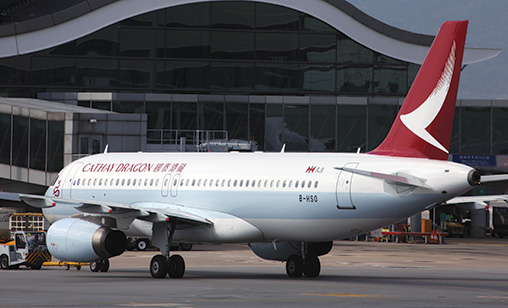Orient Aviation 2020 Year in Review
December 1st 2020
OCTOBER
It was the end of the road for AirAsia Japan and Cathay Dragon when both carriers became victims of COVID-19. Read More » AirAsia Japan ceased operations on October 5, marking another unhappy end for AirAsia Group’s ambitions in the Land of the Rising Sun. Shutting down the LCC, a partnership between AirAsia Group and several Japanese investors, became reality after it was concluded it would be extremely challenging to continue operating without any visibility and certainty of a post-pandemic recovery, the group said.
October also was a tough month for AirAsia X (AAX), which disclosed it was facing “severe liquidity constraints” in meeting its debt and other financial commitments. The long-haul and regional LCC said board member, Lim Kian Onn, would lead a turnaround effort, which included renegotiating with creditors, reducing shares on issue by 90% and shrinking the route network – all pre-requisites for raising funds either through equity or debt.
 |
The proposed restructuring with unsecured creditors included about $63.5 billion ringgit of debt being “reconstituted into an acknowledgement of indebtedness by AAX” for a principal amount of up to $200 million ringgit.
A couple of weeks later, Cathay Pacific Group revealed the outcome of a months-long review that forced the redundancy of up to 8,500 staff and the closure of its regional full-service carrier, Cathay Dragon. Those still with jobs at the group were required to accept lower pay and reduced conditions to stay with the company.
The majority of the job losses were the result of the Cathay Dragon shutdown, bringing to an end a 35-year-old carrier with a network focused on Asia, particularly China, serviced by A320 family aircraft and A330s.
Chairman Patrick Healy said the decisions would reduce the company’s monthly cash burn from up to HK$3 billion in February to HK$1 billion to HK$1.5 billion.
“Cash burn at this level is clearly unsustainable so the actions we have announced today, however unpalatable, are absolutely necessary to bring monthly cash burn down to more sustainable levels,” he said.
VA changed course this month, appointing former Qantas Jetstar CEO, Jayne Hrdlicka as CEO, a month after its new owners expressed full-throated support for Paul Scurrah to remain in charge. Hrdlicka, who worked with Bain during the bidding process, took the reins as VA’s fourth CEO, following Scurrah (2019-2020), John Borghetti (2010-2019) and Brett Godfrey (2000-2010).